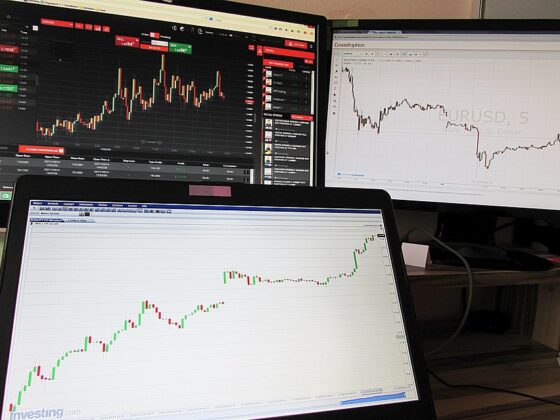Building Your Portfolio: Essential Trading Tips for Beginners
Investing in the stock market can seem like a daunting task for beginners, but with the right knowledge and strategies, anyone can build a successful portfolio. Whether you are saving for retirement, looking to grow your wealth, or just want to try your hand at trading, there are certain essential tips that can help you navigate the complex world of investing.
1. Educate Yourself
One of the most important things you can do before you start trading is to educate yourself about the stock market. This includes understanding basic concepts like how stocks are bought and sold, what drives stock prices, and how to analyze company financial statements. There are many resources available online and in books that can help you learn the basics of trading.
2. Set Clear Goals
Before you start trading, it's important to set clear goals for your portfolio. Are you looking to generate income, grow your wealth over the long term, or simply preserve your capital? Understanding your goals will help you determine your investment strategy and risk tolerance.
3. Diversify Your Portfolio
Diversification is key to building a successful portfolio. By spreading your investments across different asset classes, industries, and geographies, you can reduce the risk of losing money if one sector or market underperforms. Diversification can help you achieve more consistent returns over the long term.
4. Start Small
As a beginner, it's a good idea to start small and gradually build up your portfolio over time. This allows you to gain experience and learn from your mistakes without risking a large amount of money. Consider investing in index funds or exchange-traded funds (ETFs), which offer diversified exposure to different sectors of the market.
5. Use Stop-Loss Orders
Stop-loss orders are a useful tool for managing risk in your portfolio. By setting a stop-loss order at a predetermined price, you can limit your losses if a stock's price drops unexpectedly. This can help protect your capital and prevent emotional decision-making during market downturns.
6. Avoid Trading on Emotions
One of the biggest mistakes that beginner traders make is letting their emotions dictate their investment decisions. Fear and greed can lead to irrational trading behavior, such as buying high and selling low. It's important to stay disciplined and stick to your investment strategy, even when the market is volatile.
7. Monitor Your Portfolio
Regularly monitoring your portfolio is essential for successful trading. Keep track of your investments, review your performance, and make adjustments as needed. Stay up-to-date on market news and economic trends that could impact your investments.
8. Seek Professional Advice
If you're unsure about how to build your portfolio or make investment decisions, consider seeking advice from a financial advisor or investment professional. They can help you develop a personalized investment strategy that aligns with your goals and risk tolerance.
FAQs
Q: How much money do I need to start trading?
A: You can start trading with as little as a few hundred dollars, depending on the brokerage platform you use. However, it's important to have a solid understanding of the risks involved in trading and to start small to gain experience.
Q: How do I choose which stocks to invest in?
A: There are many factors to consider when choosing stocks to invest in, such as company fundamentals, industry trends, and market conditions. Researching companies and staying informed about the market can help you make informed investment decisions.
Q: What are some common mistakes to avoid as a beginner trader?
A: Some common mistakes to avoid as a beginner trader include trading on emotions, not diversifying your portfolio, and not doing enough research before making investment decisions. It's important to learn from your mistakes and continually improve your trading skills.
In conclusion, building a successful portfolio as a beginner trader requires patience, knowledge, and discipline. By following these essential tips and staying informed about the market, you can increase your chances of achieving your investment goals. Remember to start small, diversify your portfolio, and seek professional advice if needed. Happy trading!











